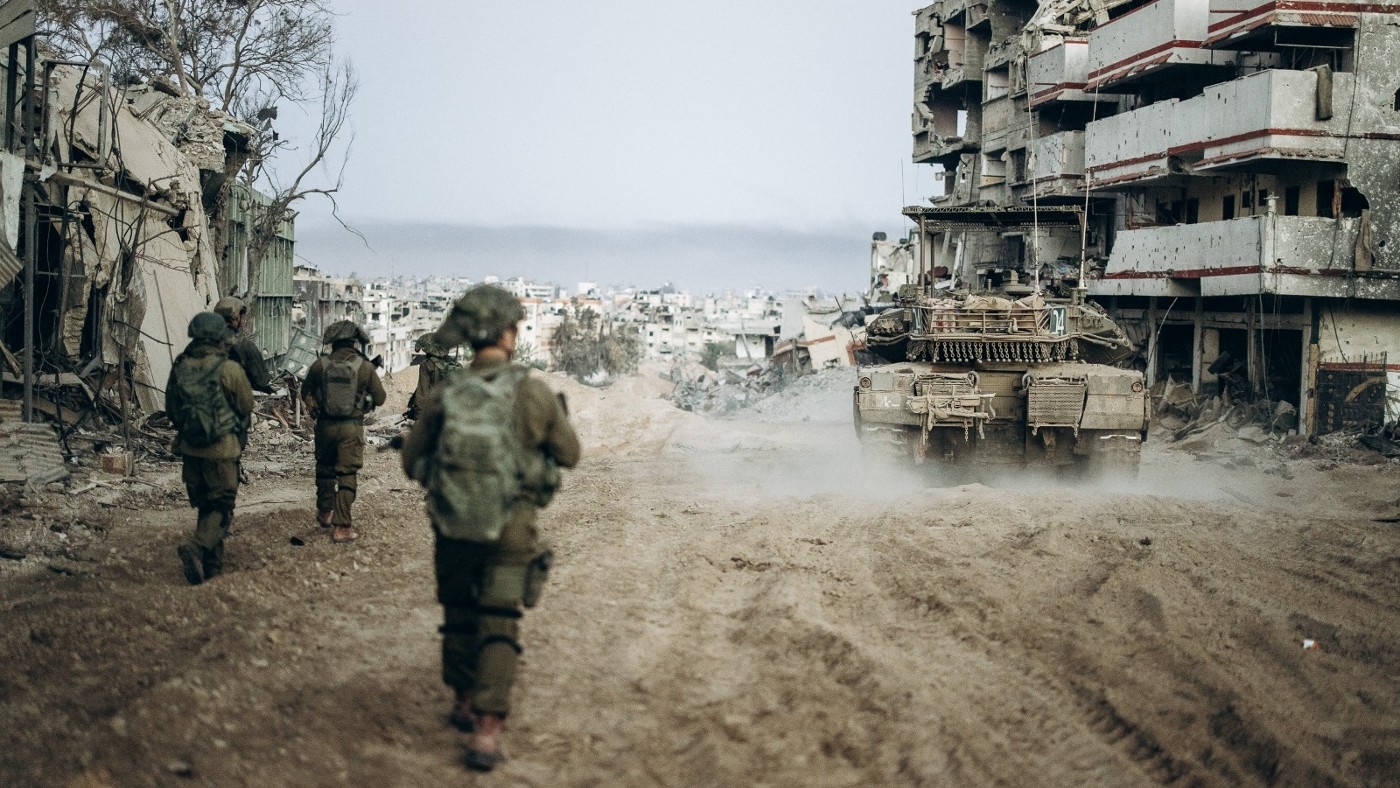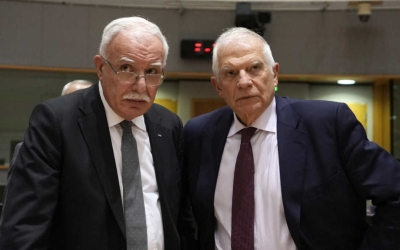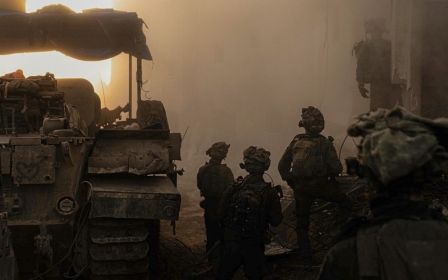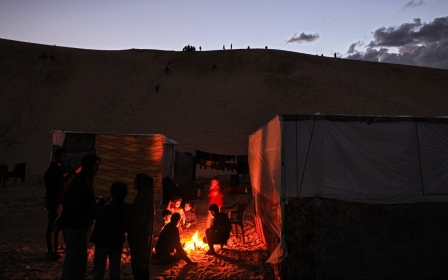Israel planning 'permanent army stations' in Gaza

Israel’s military has drafted plans to establish permanent outposts in Gaza, an Israeli officer has told Middle East Eye.
News of the plans comes despite international pressure on Israel to accept a two-state solution with the Palestinians and withdraw its army from the coastal enclave.
Earlier this month, the Israeli army announced that it would move into a “low intensity” phase of its war with the Palestinian group Hamas, in which heavy bombardments of Gaza would be replaced by targeted special operations.
There have been no signs of this materialising on the ground, though, with the military continuing its heavy shelling both in northern Gaza and areas around Khan Younis in the southern Gaza Strip, where intense clashes are ongoing.
Israeli Prime Minister Benjamin Netanyahu has said quite openly that the Israeli army will continue its operations in Gaza until Hamas is destroyed in the area and that, "in the future, the state of Israel has to control the entire area from the [Jordan] river to the [Mediterranean] sea.”
Both Israeli and US intelligence assessments have indicated that Hamas is far from being eradicated, and Netanyahu’s determination to “bring complete victory” has put him at odds with many inside Israel, including fellow war cabinet member Gadi Eisenkot, who has said that the “absolute defeat” of the armed group is not a realistic objective.
'Netanyahu and his far-right war cabinet are not planning to withdraw from Gaza...This model is a more militarised version of the West Bank'
- Israeli army officer
The Israeli military officer, who asked MEE not to report his rank and name, said that Netanyahu and his government associates had already asked the army to establish permanent bases in the Gaza Strip, excluding the possibility of any post-war Palestinian administration in the enclave.
The officer said the order to build up the military installations was given verbally.
“We have received orders to determine the locations of permanent army stations within Gaza,” he said. “The defence ministry and the army informally assigned a small number of officers for this purpose.”
The officer added that the worst-case scenario imagined by Netanyahu and his allies is to turn Gaza into the occupied West Bank, where the Israeli army has a free hand to do whatever it wants, from raiding houses to arresting Palestinians without a warrant or a court order.
“Netanyahu and his far-right war cabinet are not planning to withdraw from Gaza,” the officer said. He added that the prime minister is looking for ways and models to ease the international pressure over the army operations in Gaza by scaling down its presence while still maintaining it.
“This model is a more militarised version of the West Bank,” the officer said. “I have served in the West Bank. Gaza will not be like that place, there will be more frequent military stations and more soldiers.”

The Israeli army had not responded to Middle East Eye’s request for comment by the time of publication.
Israeli newspaper Yedioth Ahronoth reported yesterday that "thousands of dunams of Gazan territory will remain under Israeli control after the war".
Israel’s bombing campaign and ground operations following the 7 October Hamas attack on Israel have now left more than 25,000 Palestinians, most of them women and children, dead.
There is an ongoing humanitarian crisis in Gaza, with more than 60,000 Palestinians wounded, disease rife and available drinking water scarce.
Responding to pressure from EU diplomats to end the war and take steps towards a two-state solution with the Palestinians, Israeli Foreign Minister Israel Katz floated the idea of an artificial island off the coast of Gaza, which Israel would control to monitor aid into the coastal enclave.
“I think that the minister could have made better use of his time and focus on the security of his country, bearing in mind the high number of deaths in Gaza,” Josep Borrell, the EU’s foreign policy chief, told reporters after the presentation of the plan, which included a video.
This article is available in French on Middle East Eye French edition.
Middle East Eye propose une couverture et une analyse indépendantes et incomparables du Moyen-Orient, de l’Afrique du Nord et d’autres régions du monde. Pour en savoir plus sur la reprise de ce contenu et les frais qui s’appliquent, veuillez remplir ce formulaire [en anglais]. Pour en savoir plus sur MEE, cliquez ici [en anglais].




